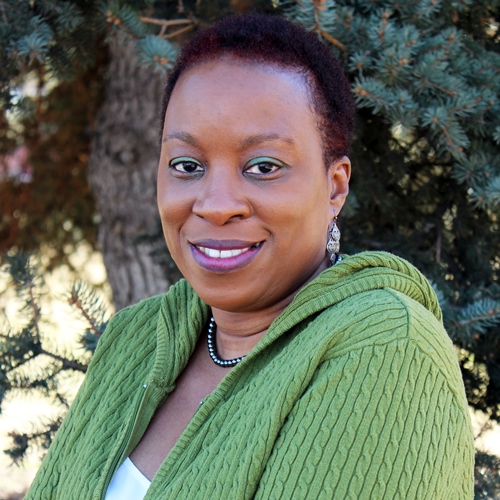Photo by Jillian Keller. Used with permission from The Rocky Mountain Collegian.

For Namuyaba Temanju, helping others runs in the family.
Temanju (B.A. '14, anthropology; M.A. ’17, ethnic studies with a graduate certificate in women's studies) grew up in Nairobi, Kenya watching her mother and grandmother work as nurses, serving marginalized populations with the same compassion and access as the rest of their communities. At one point, Temanju’s mother worked in Somalia and with Somali refugees in Kenya. Somali refugees were – and continue to be – stigmatized and vilified by the Kenyan people.
“If you can imagine the rhetoric you hear about refugees in the United States, it’s just as bad in Kenya,” Temanju explained. “Somehow, globally, people don’t have anything good to say about refugees and I grew up in that kind of atmosphere.”
Despite the societal disdain for Somali refugees in Kenya, Temanju’s mother encouraged a more ethical way to seeing vulnerable populations like the Somalis.
“The only person I know, personally, that did not have anything bad to say about refugees is my mother,” noted Temanju. Her mother’s example fueled Temanju’s own desire to work with Somali refugees which she got the opportunity through her graduate research at Colorado State University.
Temanju, while enrolled in the ethnic and women’s studies graduate program, took a course on Latino/a politics that helped her discover her path to helping others. In the class, students were asked to read an assigned book about the 1994 California Proposition 187 act that made undocumented immigrants ineligible for public benefits. Temanju struggled to read about the socially and ethically problematic ways immigrants are treated in the U.S.
“As I read [the book], I started to feel really sick and thought, ‘How can people be so mean? How could people say these things?’” Temanju reminisced.
Temanju realized that she was part of the problem; while she did not engage in anti-immigrant rhetoric, she was just as implicated because she was doing nothing to stop it. This realization led Temanju to write her thesis about the obstacles confronting Somali women regarding their health and well-being as refugees. Temanju says she “went into the work with purpose” while performing graduate research with the Somali refugee population in Fort Morgan.
After completing her research and degree, Temanju continues to serve the refugee populations in Fort Morgan as a community organizer for the Center for Health Progress, a local organization that helps marginalized populations access health care. Temanju’s position allows her to assist refugees by helping them better understand and access existing community resources.
“I come from a background where people did not say positive things about refugees,” said Temanju. “Living in America where people don’t say positive things about immigrants—and I’m an immigrant—helps me understand them better.” Temanju’s sense of kinship with the Somali refugees in Fort Morgan and the generosity and kindness she has been shown by her colleagues gives her love and passion for her work.
“A lot of times we think we’re going to help. However, we get helped in return,” Temanju said. “I love the fact that I learn a lot and get a lot, probably more than they do. Seriously, I probably do.”
Temanju credits her education with helping her understand how she exists in the world, how to work with people from different backgrounds than her own, and how to act with intention. It has helped her “walk better in the world.”
But the enthusiasm and drive to help others in a meaningful way – that’s something Temanju received from the generations of women before her.
Namuyaba Temanju lives with her mother in Fort Collins, Colorado and works in Fort Morgan.
Learn more about the Department of Ethnic Studies and Women's Studies.
